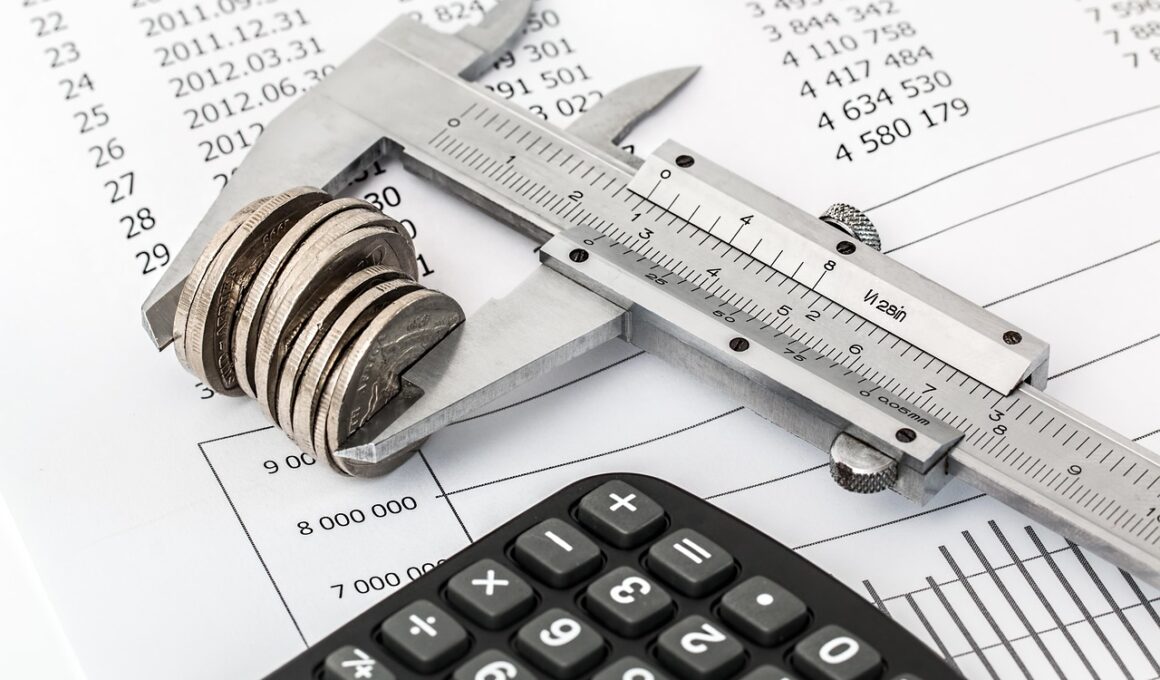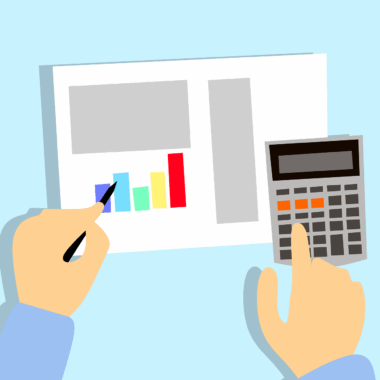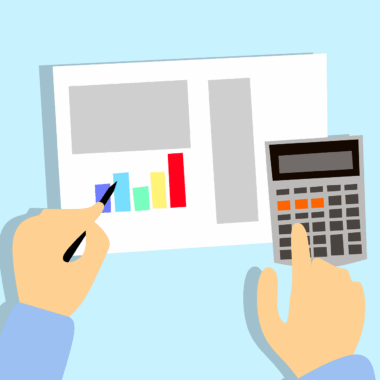Tax Planning Tips During Economic Uncertainty
In times of economic uncertainty, effective tax planning becomes crucial for both individuals and businesses. Understanding available deductions is vital in optimizing tax liability. One primary strategy is to maximize pre-tax contributions to retirement accounts, which can lower taxable income significantly. Individuals can explore traditional IRAs and 401(k) plans, while businesses may consider SEP IRAs or SIMPLE plans. Additionally, keeping abreast of changing tax legislation is fundamental, as alterations can present new opportunities or challenges. Tax credits often change, so staying updated can lead to substantial savings. Engaging in smart tax-loss harvesting may assist investors during market volatility by offsetting capital gains. Furthermore, reviewing your filing status can reveal additional deductions and credits available during uncertain times. Consider consulting a tax professional for personalized advice; this is especially true for complex tax situations. Ensuring proper documentation, like receipts and transaction records, facilitates smooth audits and claims. Finally, creating a tax-efficient investment strategy can also help maintain financial health by considering factors like dividend reinvestment and capital gains distributions.
Another important aspect of tax planning involves timing income and expenses. By deferring income to a later tax year, it is possible to lower taxable income for the current year. If you anticipate a lower tax bracket next year, consider delaying bonuses or commissions. Similarly, accelerating deductible expenses, such as charitable contributions or medical expenses, into the current tax year can enhance deductions. For businesses, taking advantage of expensing options, like Section 179, allows immediate deductions for certain equipment purchases. It’s also essential to investigate available tax deferral strategies, such as utilizing Health Savings Accounts (HSAs) or Flexible Spending Accounts (FSAs). Both options provide tax benefits while managing healthcare costs effectively. Furthermore, strategizing how you handle investments during economic unrest can be beneficial. Traditional stocks may be volatile, hence diversifying your portfolio through real estate or alternative investments could stabilize returns. Always remember that planning is more effective with a proactive approach; by analyzing previous tax returns, you can spot opportunities for implementing new strategies. Regularly reviewing your plan amidst shifting markets is key to ensuring ongoing financial stability and reducing tax burdens.
Understanding Tax Credits
Tax credits are significant tools for reducing overall tax liabilities, particularly during difficult economic times. Unlike deductions, which reduce taxable income, tax credits directly diminish the tax owed. Many taxpayers overlook valuable credits such as the Earned Income Tax Credit (EITC) and the Child Tax Credit. Knowing eligibility and the requirements for these credits can lead to substantial savings, especially for lower-income families. Credits can also apply to energy-efficient home improvements, encouraging sustainability while economically benefiting homeowners. For businesses, taking advantage of research and development (R&D) tax credits promotes innovation and can reduce costs significantly. Each of these credits has unique eligibility requirements and benefits; thus, diligent research and understanding are necessary to leverage them fully. Additionally, state tax credits vary widely and can alleviate some local financial burdens. When applicable, investigate stock options within your tax planning strategy since these can also yield tax credits in specific scenarios. Remember, effective use of tax credits may necessitate consulting a tax advisor to align strategies with current financial situations, maximizing overall savings and efficiency in tax liabilities.
During economic uncertainty, liquidity management is essential. Ensuring you have sufficient cash flow allows you to meet obligations without owing additional penalties or interest. Contingency funds act as safety nets, especially when income fluctuations occur. Maintaining good financial health reduces risks associated with unexpected expenses or downturns. Consider using tax refunds wisely; applying them to debt can free up cash flow and reduce burden in future tax years. Delay filing your taxes until the last possible moment if you’re unsure of your financial standing, this gives you time to prepare and strategize. If you’re anticipating a tax liability, make estimated payments to avoid penalties. On the other hand, if you have a refund due, you may want to adjust withholding levels in future paychecks to accommodate future expenses safely. Understanding the implications of various tax positions is important. Staying proactive in managing cash flow helps navigate fluid economic situations encouraging those who may feel unprepared to seek out financial professionals for guidance.
The Importance of Professional Advice
In uncertain economic climates, the benefits of consulting with a tax professional are abundantly clear. Tax laws can be complex and frequently changing; a professional can help you stay compliant while maximizing deductions and minimizing liabilities. Business owners, in particular, face unique challenges that can require specialized knowledge, like navigating sales tax regulations or reporting business income accurately. Furthermore, tax professionals can provide insight into tax planning strategies that align with your specific situation. Whether it’s guidance on setting up retirement plans or selecting investments that optimize tax outcomes, tailored advice can prove invaluable. Understanding future tax implications of major financial decisions is another area where professionals shine. From selling a property to large business transactions, their expertise can uncover opportunities you might otherwise overlook. They also assist with audits, representing you before the IRS if necessary. Business owners should consider working with CPAs familiar with their industry’s intricacies. By obtaining professional guidance, you not only ensure adherence to regulations but also create a proactive approach that can lead to long-term financial success.
Another effective tax strategy involves taking advantage of available tax-deferred accounts. Accounts such as Individual Retirement Accounts (IRAs) allow individuals to save for retirement while reducing taxable income. With tax-deferred growth, you can increase savings significantly over time. Similar opportunities exist for businesses through SEP IRAs or solo 401(k) plans to help small business owners prepare for retirement. Tax-exempt accounts, such as Roth IRAs, allow for tax-free withdrawals, providing flexibility that can be advantageous during uncertain times. Always evaluate your overall financial situation to choose the right account options for tax planning. Consider utilizing Coverdell Education Savings Accounts (ESAs) or 529 plans for educational expenses, benefiting from tax-free growth while funding future education. Keep in mind that changing investment strategies can coincide with shifting regulations. When embarking on tax-deferred contributions, consult a tax advisor to align these contributions with income projection and retirement timing. Regularly reassessing investment strategies, tax products, and savings accounts within the broader context of your financial goals can maximize efficiency. Tax efficiency should be an ongoing effort to adapt to evolving economic conditions.
Final Thoughts on Tax Planning
In summary, navigating tax planning during economic uncertainty is imperative for securing financial well-being. It involves being informed, proactive, and strategic to endure fluctuations effectively. Engaging in thorough research regarding tax laws, credits, and deductions ensures opportunities are fully harnessed. Effective liquidity management and maintaining contingency funds safeguard against potential downturns or unforeseen expenses as you prepare taxes collaboratively with an expert. Implementing strategies such as income timing, maximizing retirement contributions, or utilizing tax-deferred accounts can significantly affect overall tax liabilities. Remember the importance of regularly reviewing financial records; meticulous tracking may yield insights into optimizing tax positions. Finally, maintain open communication with your tax professional, ensuring alignment of financial strategies with prevailing economic conditions. Consider potential changes in your unique situation while projecting future needs. Moreover, don’t hesitate to adapt your tax strategies as new guidance emerges; staying agile enables you to best prepare for economic fluctuations, taking charge of your finances while ensuring compliance and harnessing all available tools. Effective tax planning is not merely a function of numbers; it enhances your overall financial resilience.





